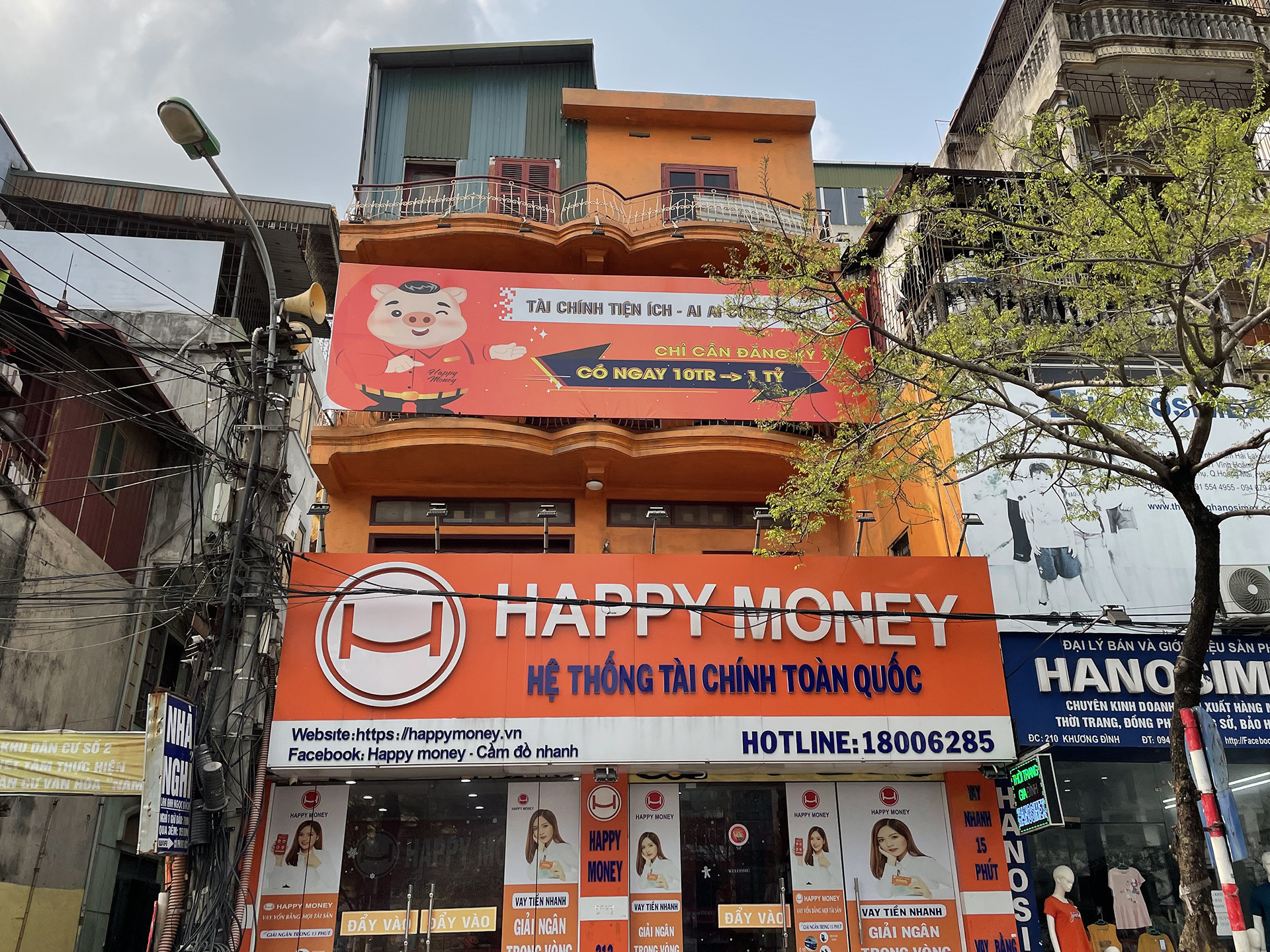
Unlike traditional pawnshops which are mostly located on major streets, pawnshop chains are seen in advantageous positions, especially at crossroads with heavy traffic.
Needing a VND20 million loan to do business, Tran Van Duc in Hanoi visited a pawnshop in Dong Da district. He was told that the interest rate was 0.85 percent a month and 10.2 percent per annum. If clients borrowed VND10 million and paid within 40 months, they would have to pay VND250,000 a month by installment, VND335,000 a month in interest and other kinds of fees.
The minimum installment period was three months and maximum 40 months.
In addition to interest rates, borrowers have to pay an assessment fee (1.4 percent) and asset management fee (5.6 percent). The real amount of money clients have to pay is high compared with the advertised amounts.
In order to get disbursements, borrowers also have to take out insurance policies.
“The interest rates are very high. If borrowers don’t have an income, they won’t be able to pay principal and interest to redeem the pawned objects,” Duc said.
The interest rates set by pawnshops differ. At F88, clients can borrow money with motorbike registration certificates. If they borrow VND10 million within 12 months, they have to pay an interest rate of 1.1 percent a month and other kinds of fees, including lending condition inspection fee (1.4 percent), a mortgaged asset management fee (2-3 percent a month) if assets are left at pawnshops, and a 5 percent fee if borrowers want to borrow assets, among other fees.
Despite high costs, many people still choose pawnshops when they need capital. The advantage of the service includes simple procedures, the acceptance of diverse collateral and the flexible amount of loans depending on the value of mortgaged assets.
It is much easier to borrow money from pawnshops than from banks.
The list of assets pawnshops accept as collateral include bullion gold, jewelry, diamonds, gemstones, laptops, mobile phones, cameras, paintings, antiques, household goods, bags, footwear, watches, motorbikes, cars, land and houses.
Forbes Vietnam estimated that the Vietnamese pawn lending market was worth tens of billions of dollars in 2019.
Pawnshop chains have expanded rapidly to get larger market share. From 11 transaction offices in 2017, F88 had 304 offices by the end of 2020. As of Q2 2022, it had 786 branches in 63 cities and provinces. In 2023, the company plans to have 1,000.
Vietmoney, Camdonhanh, Dong Shop Sun, Happy Money and Ok Money have smaller scale.
Dong Shop Sun, for example, has 19 stores, mostly present in the south, and one store in Hanoi. T99 chain appeared in 2021 and planned to open 100 transaction points.
As the business brings super profits, pawn credit chains have attracted investments. F88 successfully called for $50 million in investment capital (VND1.185 trillion) in a Series C round from Vietnam-Oman Fund (VOI) and Mekong Enterprise Fund IV (MEF IV).
VietMoney is another well-known name. Established in 2016, VietMoney had two rounds of capital call from Indochine Investment (2018) and two rounds of Series A capital call from Probus Opportunities (Switzerland) and Digi Ventures (Vietnam) in 2020.
VietMoney has 35 branches, mostly in HCM City and six cities and provinces in the south.
Meanwhile, Camdonhanh has had an investment from John Galt Ventures. The chain has four stores in HCM City and plans to open in Hanoi. Srisawad Corporation, the Thai chain, opened its first shop in Vietnam in 2016 and now has nearly 100 transaction points.
Lawyer Tran Vi Thoai, director of IB Legal Vietnam, said in addition to commercial banks and finance companies which operate under the Law on Credit Institutions, pawn services can lend money and are mostly for small consumer loans.
Pawn companies operate under the Civil Code, so if they lend money at interest rates of over 20 percent, they are violating the law.
Though pawn service is listed as a conditional business in Decree 96/2016, Vietnam still doesn’t have a legal framework detailed enough to cover the activities. Meanwhile, the business is seen as ‘sensitive’.
Thoai said that it is necessary to reorganize the debt collection activities of pawn companies. Some of them use debt collectors from ‘black society’ who suppress and terrorize debtors. Murder cases related to pawnshops have occurred.
Duy Anh